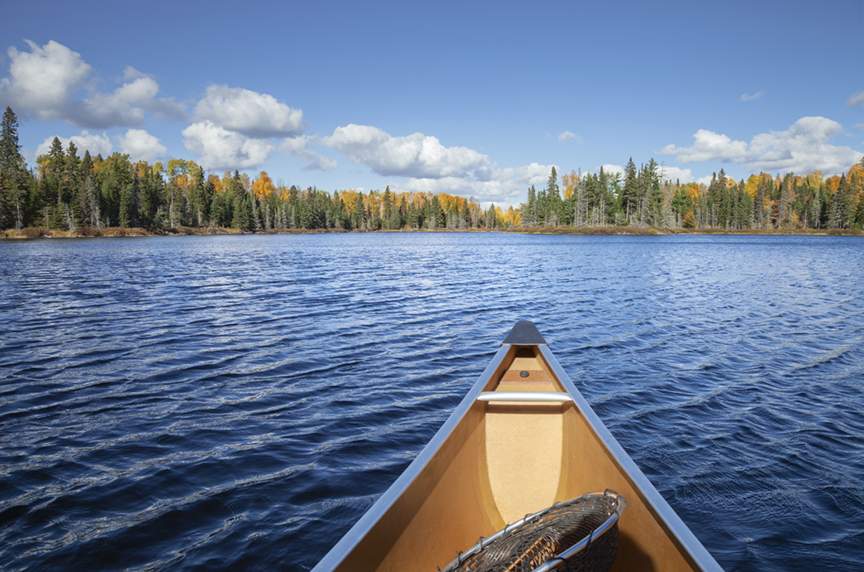
How can Two-Eyed Seeing/Etuaptmumk help us to better understand and be stewards of local land and waters and to advocate for their protection?
A Grade 8 classroom conducted an interdisciplinary study of a local lake’s ecosystem. Learners planned to learn about the lake through various secondary and primary sources. As a class, they discussed how to show respect to Elders and how to be active observers and active listeners. Together, they co-constructed what “seeking to understand others” might look like and sound like so they could listen with an open mind to deepen understanding.
The class worked together to map the lake and learned about relevant treaties and their implications. They met with Elders to gain historical perspectives on the lake’s ecological, cultural, and social significance. They learned about the lake’s health by testing the water, and about indicators of ecological balance and distress. From Elders and Knowledge Keepers, they also learned key Indigenous words about cultural practices related to the lake, including water teachings and ceremonies and how their lived experience shaped their identity and relationship to the lake. After every lesson, learners documented their learning in forms that worked for them. Some took notes, some wrote journal entries, and some took pictures or sketched.
To understand the importance of this foundational knowledge and understanding of the lake’s health, the learners participated in a hands-on fish harvest day. They learned the practices and protocols for the day from a Knowledge Keeper and catalogued their catch data for further analysis. After this day of fishing, the learners met in a Sharing Circle to unpack what they learned about themselves and the lake. This immersive experience nurtured a deeper connection between the learners and their local environment.
Following the harvest, learners completed an in-depth investigation into the lake's health, including analyzing fish data and searching for microplastics. The learners reported their findings from all their learning and investigations using a mode that would allow them to share ideas about how to improve the health of the lake with their local community. They analyzed several mentor texts to understand how text features of different forms or modalities help express ideas. They also discussed their audience and considered their needs. Depending on their audience, they made plans about how to share their findings in person and/or using digital methods. Many learners created brochures to share with the community, some created infographics and posted them to social media, others created photo essays and shared them online, while still others wrote to their various leaders advocating for changes. The learners ended the project reflecting on the most important thing they had learned about the lake and what they had learned about themselves as communicators.
Extensions
Marshall, Albert. Two-Eyed Seeing. Golden Hills School Division, 2022.